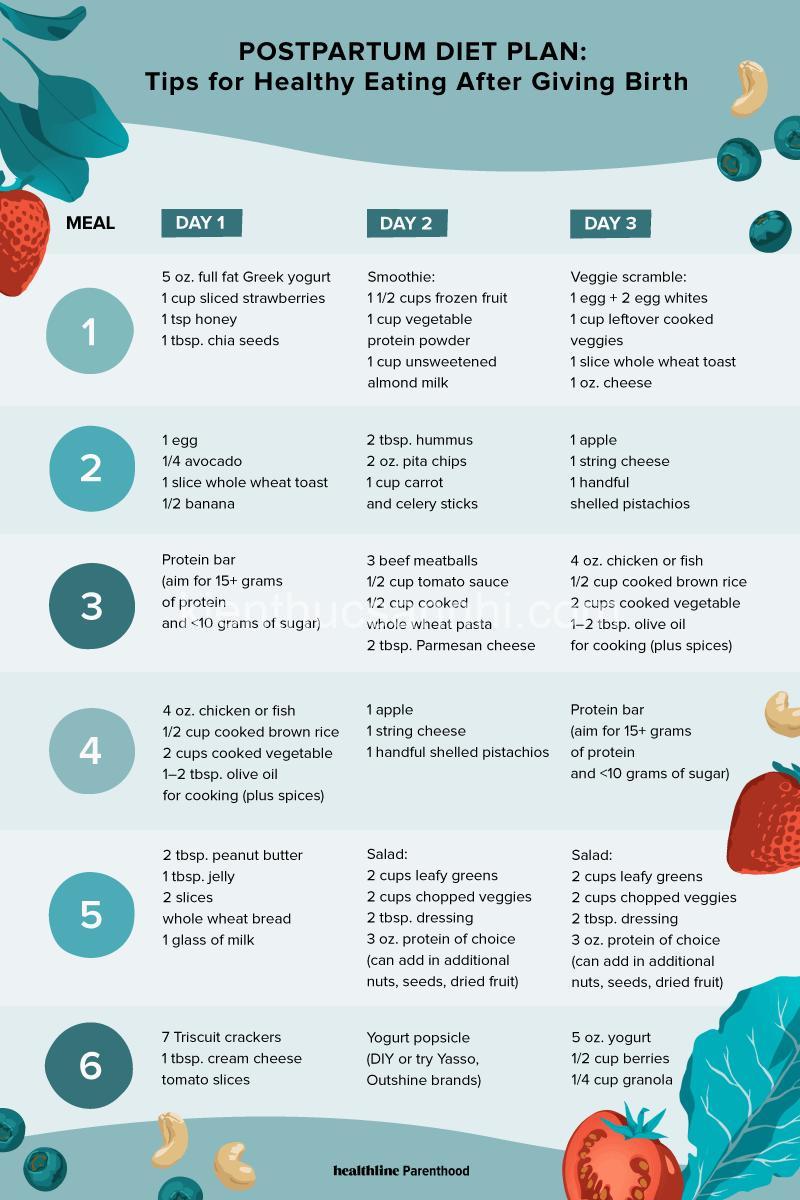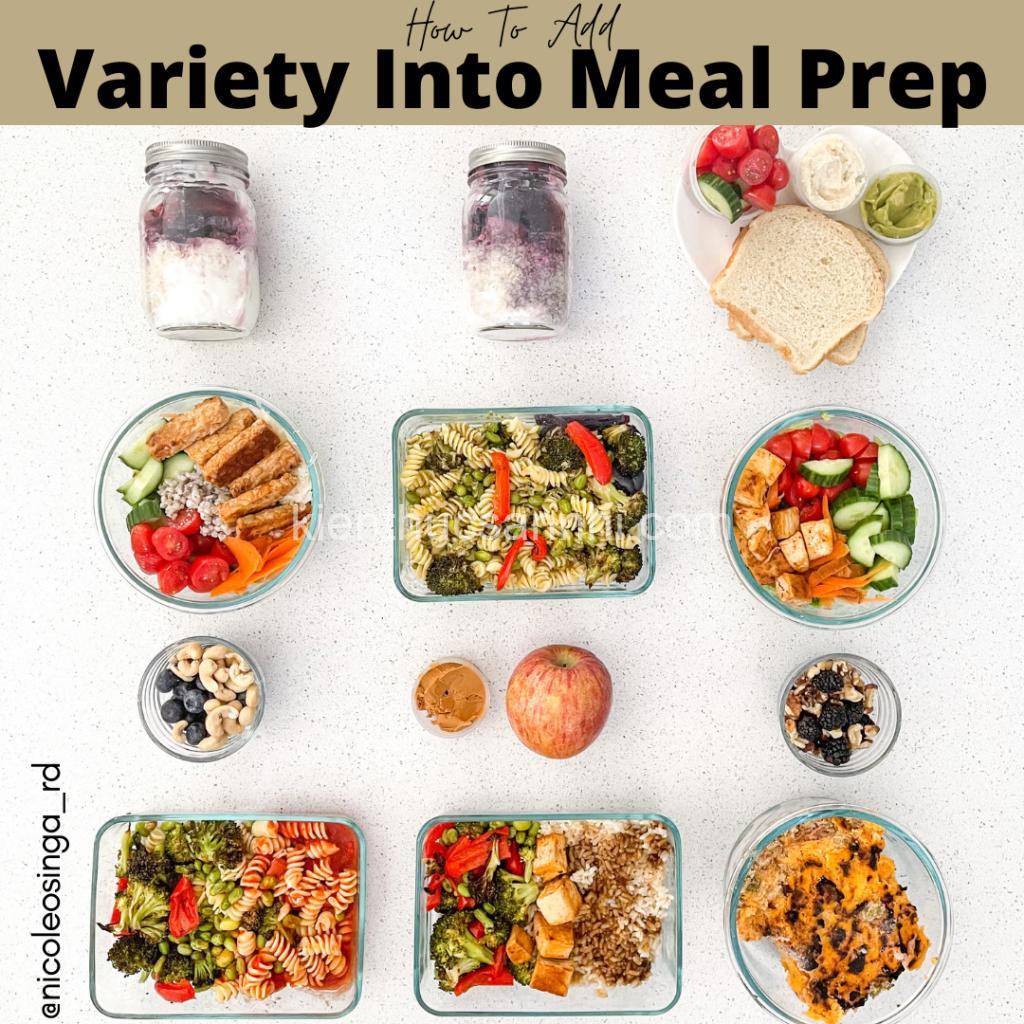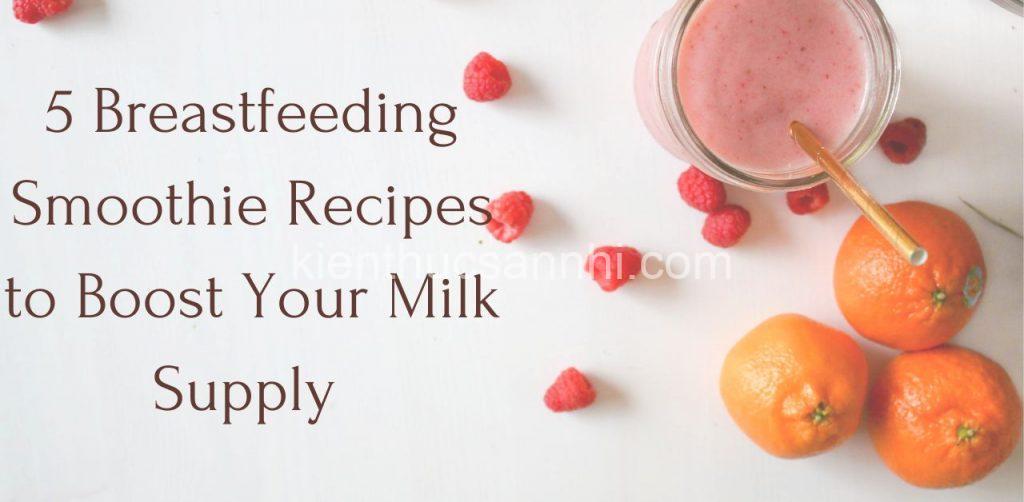
Balanced Postpartum Meals: Understanding Your Needs & Practical Tips. In today’s article, kienthucsannhi.com will explore with you in the most detailed and complete way. See now!
Understanding Your Postpartum Nutritional Needs
The postpartum period is a time of incredible change for your body. You’ve just experienced a major physical event, and you’re now focused on nourishing your baby. This means you need to pay extra attention to your own nutritional needs to support your recovery, energy levels, and overall well-being.
The Importance of Balanced Nutrition for Postpartum Recovery:
A balanced diet is the cornerstone of a successful postpartum recovery. The nutrients you consume play a vital role in healing your body, replenishing energy stores, and supporting your mental health. Imagine your body as a car—it needs fuel to run smoothly, and that fuel comes from the food you eat.
Essential Nutrients for Postpartum Recovery:
Your body needs a variety of nutrients to function optimally during this time. Here are some key players:
- Iron: Iron is essential for preventing anemia, a condition that can leave you feeling tired and weak. Iron is particularly important for women who experience heavy bleeding after childbirth. Excellent sources include red meat, beans, lentils, spinach, and fortified cereals.
- Calcium: Calcium is crucial for strong bones, which are vital for recovery and for supporting breastfeeding. You need enough calcium to rebuild your bone density and to produce milk for your baby. Good sources include dairy products, leafy green vegetables, and fortified plant-based milk alternatives.
- Protein: Protein is vital for tissue repair, muscle recovery, and milk production. You’ll need extra protein to help your body rebuild after labor and delivery, and to provide the building blocks for your baby’s growth. Excellent sources include chicken, fish, eggs, beans, lentils, and tofu.
- Vitamin D: Vitamin D plays a critical role in calcium absorption, which is essential for bone health. It also supports immune function, which is important for fighting off infections and staying healthy. Good sources include fatty fish, eggs, and fortified milk. You may also want to consider taking a Vitamin D supplement, especially if you don’t get enough sunlight exposure.
- Folate: Folate is crucial for red blood cell production and supports fetal development. Folate is also important for energy production, which is vital for postpartum recovery. Good sources include leafy green vegetables, fortified cereals, legumes, and citrus fruits.
- Other essential vitamins and minerals: It’s important to get a balanced intake of other vital vitamins and minerals, including Vitamin B12, zinc, and iodine. These nutrients play essential roles in supporting your energy levels, immune function, and overall well-being.
Practical Tips for Balancing Postpartum Meals
Now that you understand the importance of these key nutrients, let’s dive into some practical tips for creating balanced meals:
- Prioritizing Nutrient-Dense Foods: The key is to focus on foods that are packed with nutrients. Choose lean protein sources like chicken, fish, beans, lentils, and tofu. Incorporate plenty of complex carbohydrates such as whole grains, vegetables, and fruits. Don’t shy away from healthy fats like those found in avocado, nuts, seeds, and olive oil.
- Including a Variety of Colorful Fruits and Vegetables: Fruits and vegetables are loaded with fiber, vitamins, minerals, and antioxidants—all of which are essential for postpartum recovery and your baby’s health. Aim for a rainbow of colors on your plate, and include them in every meal.
- Staying Hydrated: Water is essential for recovery, milk production, and overall health. Make sure you’re drinking plenty of water throughout the day. You may also find that herbal teas or diluted fruit juices can help you stay hydrated and provide a boost of flavor.
- Considering Supplementation: It can be challenging to meet all your nutritional needs through diet alone, especially during the postpartum period. Talk to your doctor about whether supplementation is right for you. You may want to consider taking iron and Vitamin D supplements, particularly if you’re not getting enough from your diet.
Tailoring Your Diet to Your Postpartum Needs
Your postpartum dietary needs might shift based on your individual circumstances. Let’s take a look at some common situations:
-
Breastfeeding: When you’re breastfeeding, your calorie needs increase to support milk production. You also need to pay extra attention to your intake of essential nutrients like iron, calcium, and vitamin B12, which are important for both your health and your baby’s development.
- Calories: You’ll need to consume more calories than usual to meet the demands of breastfeeding. Talk to your doctor or a registered dietitian to determine the right calorie intake for you.
- Iron: Iron is crucial for milk production, so it’s important to get enough iron from your diet or through supplementation.
- Calcium: Calcium is essential for both your bone health and for your baby’s development.
- Vitamin B12: Vitamin B12 is important for milk production and for your baby’s brain development.
-
C-section Recovery: If you’ve had a C-section, it’s essential to focus on foods that support wound healing and promote gut health.
- Fiber: Fiber helps regulate digestion and can prevent constipation, which is a common concern after surgery.
- Probiotics: Probiotics can help restore the balance of good bacteria in your gut, which is essential for digestion and overall health. Look for foods rich in probiotics, such as yogurt, kefir, sauerkraut, and kimchi.
-
Postpartum Depression and Anxiety: The postpartum period can be a challenging time emotionally, and there’s a strong link between nutrition and mental health.
- Omega-3 fatty acids: Omega-3 fatty acids are known for their positive effects on mood and brain function. Good sources include fatty fish, walnuts, flaxseeds, and chia seeds.
- Vitamin B12: Vitamin B12 is essential for mental well-being and plays a role in reducing the risk of postpartum depression.
- Iron: Iron deficiency can contribute to fatigue and low mood, so it’s important to make sure you’re getting enough iron.
Making Meal Planning Easier
It’s understandable that meal planning can feel overwhelming during the postpartum period. But don’t worry—there are strategies to make it easier:
- Meal Prepping for Postpartum: Preparing meals in advance can save you time and stress, especially when you’re sleep-deprived and busy caring for your baby.
- Quick and Easy Recipe Ideas: Look for recipes that are simple to make and can be prepped in advance. Consider using slow cookers, pressure cookers, or meal delivery services to make meal planning less demanding.
- Involving Partners and Family: Don’t be afraid to ask for help! Your partner, family, or friends can assist with meal preparation, grocery shopping, or even bringing over homemade meals.
Seeking Professional Guidance
It’s always a good idea to talk to a healthcare professional about your nutritional needs during the postpartum period.
- Consult a Registered Dietitian: A registered dietitian can create a personalized meal plan that meets your individual requirements.
- Importance of Doctor’s Approval: Before making significant dietary changes, it’s essential to get approval from your doctor. They can ensure that your choices are safe and appropriate for your specific postpartum needs.
FAQs

What foods should I avoid during postpartum?
It’s important to talk to your doctor about any dietary restrictions during the postpartum period. Some foods to avoid include:
- Raw seafood and unpasteurized dairy: These foods may increase the risk of foodborne illness.
- Excessive caffeine and alcohol: These substances can impact your recovery, milk supply, and baby’s health.
- High-sugar processed foods: These foods can contribute to fatigue, weight gain, and mood swings.
How can I manage food cravings?
Food cravings are common during the postpartum period, especially if you’re experiencing hormone fluctuations or sleep deprivation.
- Hydrate: Often, thirst can be mistaken for hunger.
- Eat regular meals and snacks: This can help prevent your blood sugar from dropping too low, which can trigger cravings.
- Choose healthy snacks: Keep healthy snacks on hand, such as fruits, vegetables, yogurt, or nuts.
What should I do if I’m struggling to meet my nutritional needs?
If you’re finding it difficult to get the nutrients you need through diet alone, talk to your doctor about supplementation.
- Iron supplements: Iron supplements can help prevent iron deficiency anemia, which is common during the postpartum period.
- Vitamin D supplements: Vitamin D supplements may be recommended, especially if you don’t get enough sunlight exposure.
When should I seek professional help from a registered dietitian?
If you have specific concerns about your diet or if you’re struggling to meet your nutritional needs, it’s a good idea to consult with a registered dietitian. They can create a personalized meal plan that addresses your individual requirements and helps you feel your best during the postpartum period.
Conclusion
The postpartum period is a time of tremendous change, and prioritizing your nutrition is crucial for a healthy recovery and a happy journey with your little one. Don’t be afraid to ask for help from your partner, family, or healthcare professionals. By focusing on a balanced diet and prioritizing your nutritional needs, you’re setting yourself up for a smoother recovery and a more joyful postpartum experience. Remember, you’re not alone in this journey!
For more helpful tips and information on postpartum nutrition, visit kienthucsannhi.com, your go-to resource for accurate and reliable information about caring for your baby and yourself.
Share your thoughts and questions with us in the comments below! We’re here to support you every step of the way.
Michael David Smith
Author: kienthucsannhi.com
Animal lover and owner of the website
Providing accurate, fast, and reliable information about animals.





